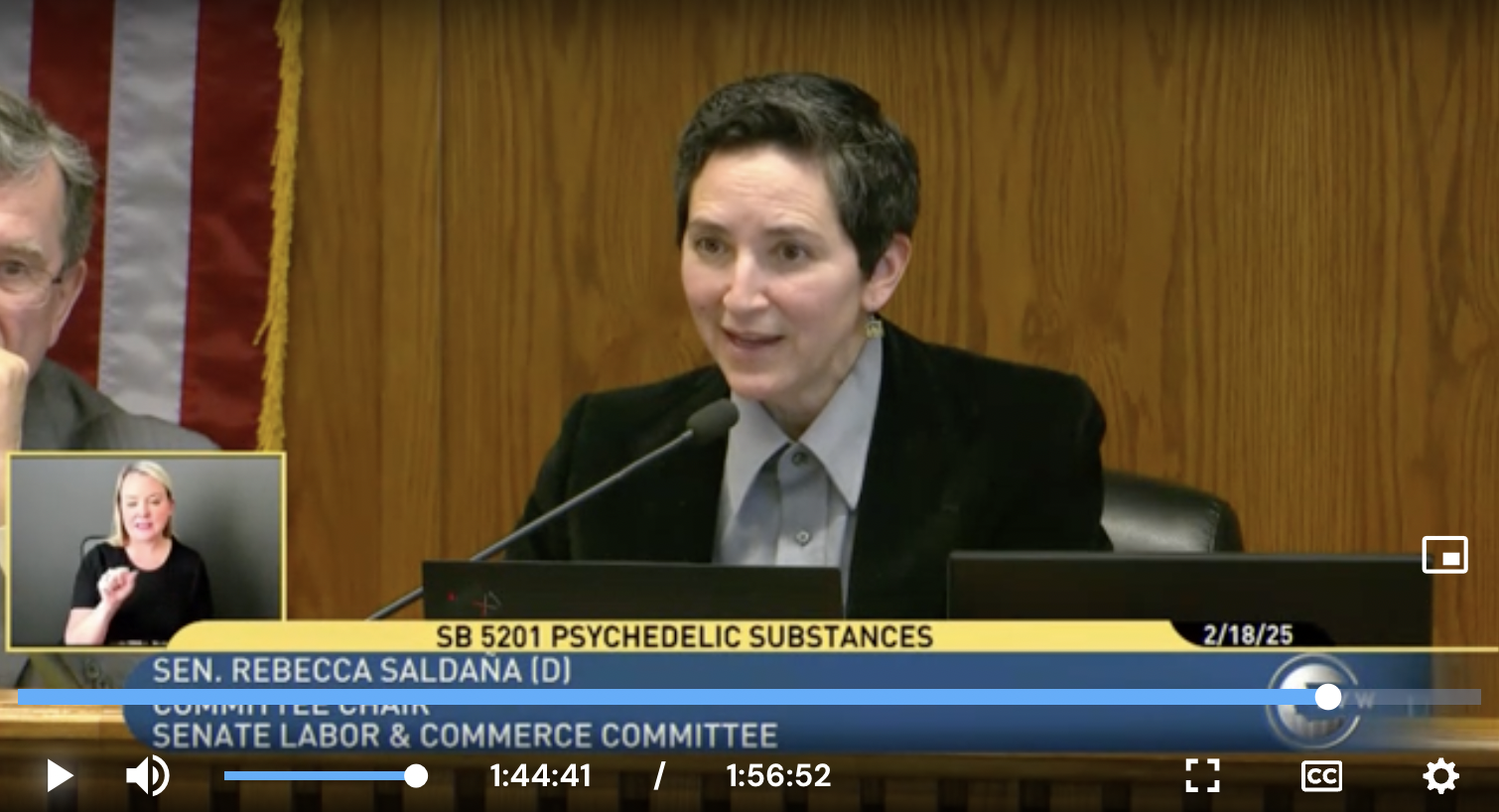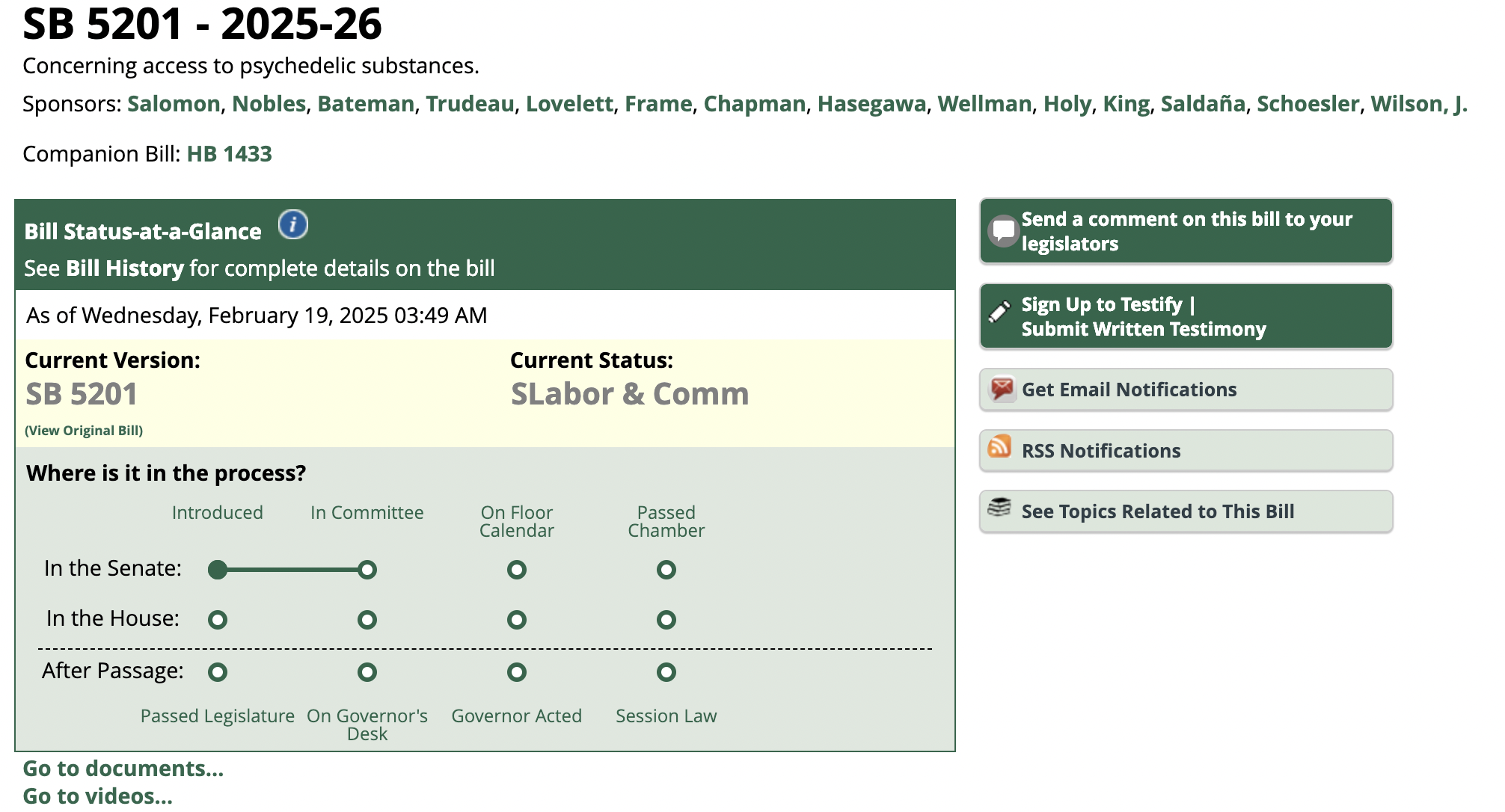The backlash was going to come and here it is..
Tania runs Mind Medicine Australia with her husband, Peter Hunt. Their organisation’s repeated attempts had been knocked back by the TGA.
As recently as October last year, the TGA ruled that there was insufficient evidence to down-schedule the drugs. But just months later, in February, it did a spectacular 180-degree turn and approved psychiatrists to use MDMA for PTSD and psilocybin for treatment-resistant depression.
That move divided the psychiatric community. It went against the advice from the peak bodies for doctors, psychiatrists and psychologists, respectively. And Background Briefing can reveal it went against the advice of the TGA’s own advisory committee.
“I have serious concerns about how that decision was reached,” a person involved in the deliberations told Background Briefing.
So, what caused the typically conservative TGA to change its mind, in a matter of months?
Push for change
Philanthropists Tania de Jong, an opera singer, and her husband Peter Hunt, a former investment banker, started Mind Medicine Australia in 2018, following a psychedelic therapy experience in Amsterdam in 2012 that they describe as life-changing.
The charity’s board includes The Ethics Centre boss Simon Longstaff, former Coalition trade minister Andrew Robb, and investment banker Nicholas Smedley, among others.
Mind Medicine Australia’s first application was rejected, following advice from the TGA’s advisory committee.
That committee met again in June last year to consider the organisation’s second, more conservative application. Background Briefing can reveal it still strongly opposed the down-scheduling.
Minutes from the meeting, obtained under freedom of information laws, reveal the committee’s reservations about listing the drugs as medicines.
“Members agreed that there was little additional evidence presented in this application … As such, the main barrier to down-scheduling psilocybine was therefore still a lack of established therapeutic value.
“Members expressed several concerns, including the broadness of the indication included in the proposal (treatment-resistant mental illness), the lack of phase III trials, and the problems associated with the translation from a clinical trial setting to clinical practice.
“The Committee agreed that the risk of diversion is low in a controlled medical environment, but noted that, contrary to the assertions of the applicant, there are significant risks of diversion at other points in the supply chain. In addition, not dispensing from a pharmacy would bypass the real-time prescription monitoring system, hence limiting oversight and governance.
“There remains no approved therapeutic product containing psilocybine anywhere in the world.”
The committee’s advice for MDMA echoed these concerns.
The committee also noted the Australian Medical Association’s continued opposition to the down-scheduling.
So it was little surprise that the secret TGA decision-maker known as “the delegate” made the interim decision in October to keep the drugs prohibited.
For most drugs, that would be the end of the story — TGA insiders told Background Briefing it’s uncommon for a final decision to diverge from the interim decision. But this time was different.
In the intervening months, Mind Medicine Australia doubled down on its campaign.
The group called for supporters to put in submissions opposing the TGA’s interim decision, and more than 3,000 heeded the call. That’s on top of the more than 13,000 public submissions the TGA had received before the interim decision.
The TGA delegate noted how few submissions came from actual psychiatrists or relevant organisations (submissions from the Royal Australian and New Zealand College of Psychiatrists and the Australian Psychological Society supported the interim decision not to down-schedule the drugs). The delegate said the submissions — largely corralled by MMA — were brief, and most failed to address any of the reservations expressed in its interim decision.
The TGA’s expert committee shared this view, advising the delegate that the submissions “did not identify any new or compelling evidence, and instead focused on emphasising human interest or philosophical points of view”.
Still, the delegate said the number of submissions was “a reasonable indicator of the scope and gravity of the issues … addressed in the application”.
The submission campaign was just the beginning.
Mind Medicine Australia engaged new lobbyists — Hawker Britton, known for their cosy relationships with the Labor government — who Peter says helped them “understand the dynamics of Canberra”.
The organisation then flew out Imperial College of London neuropsychopharmacologist David Nutt for a roadshow up and down the east coast. Professor Nutt’s world-leading research has made him something of a celebrity in psychedelic circles.
During a whirlwind tour sponsored by herbal tincture and organic chocolate brands, he addressed packed town halls in Byron Bay, Sydney, Canberra and Melbourne. Then there were the black-tie events with philanthropists and stakeholders at the Australian Clubs in Sydney and Melbourne.
Read more
https://www.abc.net.au/news/2023-03-18/psychedelic-charity-accused-lobbying-tga-mdma-psilocybin/102103782


 Cannabis News2 years ago
Cannabis News2 years ago
 One-Hit Wonders2 years ago
One-Hit Wonders2 years ago
 Cannabis 1012 years ago
Cannabis 1012 years ago
 drug testing1 year ago
drug testing1 year ago
 Education2 years ago
Education2 years ago
 Cannabis2 years ago
Cannabis2 years ago
 Marijuana Business Daily2 years ago
Marijuana Business Daily2 years ago
 California2 years ago
California2 years ago




















